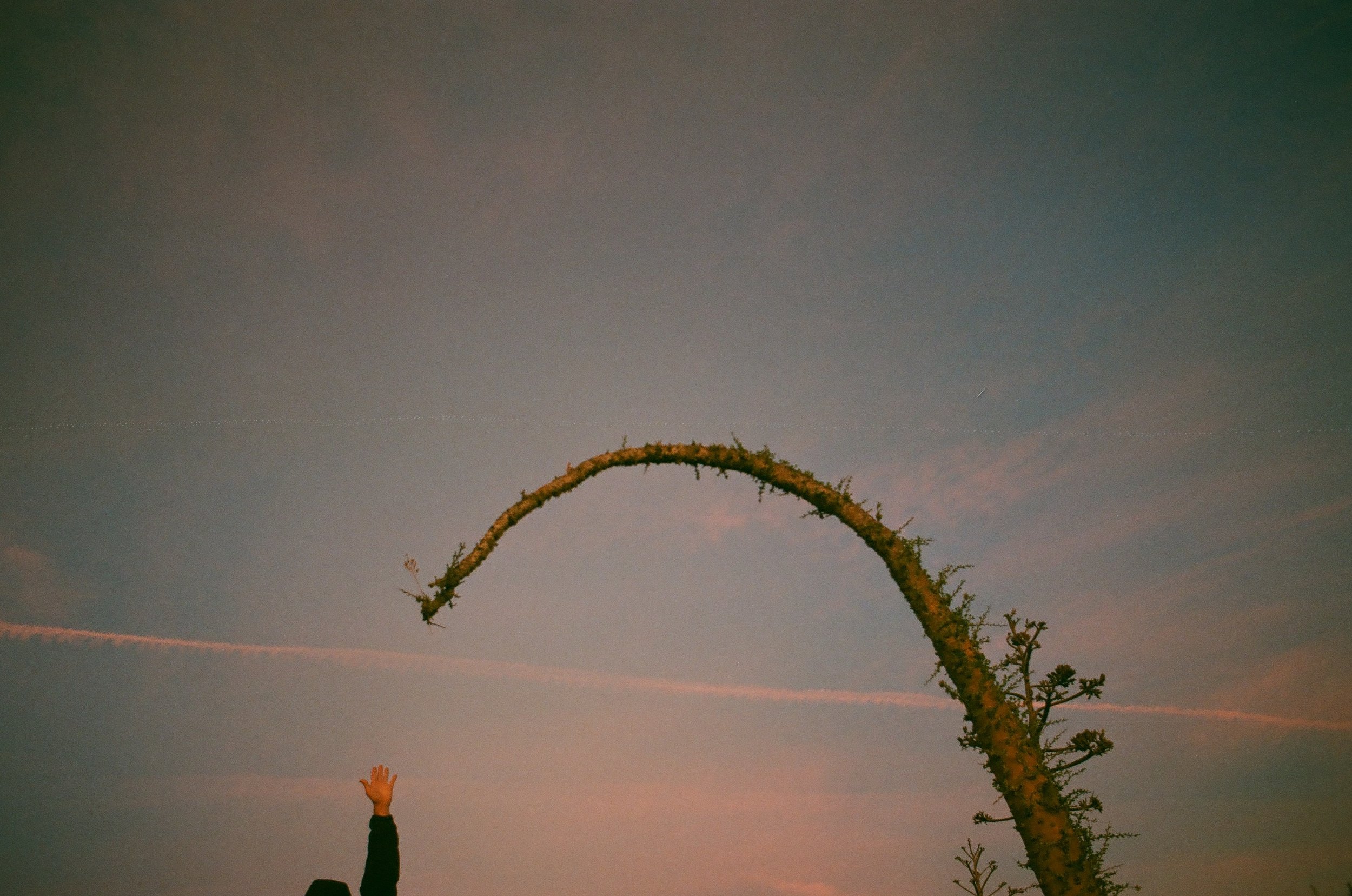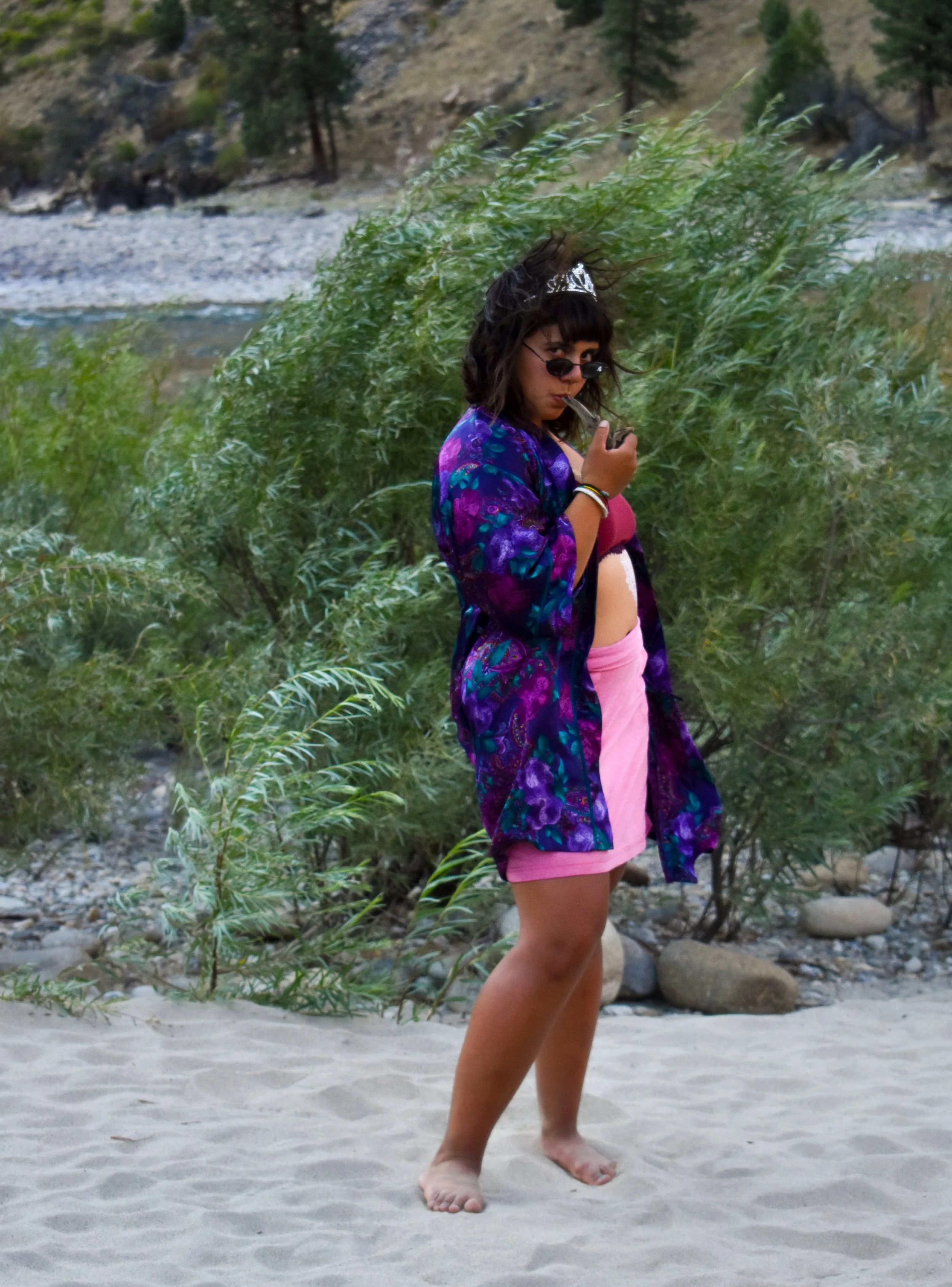
Sabs Stein
CAMELLIAS, INSTEAD
Click says the electric kettle, a reminder to water my depleted teabag again. At least there will be pretty steam to watch. The girl on Hinge said she liked steam too, so I messaged her back (another empty extension of the self during isolation). Still, I continue to pour scalding water down my throat because it does not harm, really. It fills my cavities with the river and keeps my hands busy. Boiling and drinking are some things to do when you have time.
Yesterday, we walked smoke through each room to gather up ghosts like lint. Then we hung art to quiet the walls; a wooden fish now floats above the front door, an ocean waves across from the window. Two river guides dance in the corner, sequined memory of summer. Wintertime surprised, yet again, with soggy books and fattened bellies. The grayness dripped and eventually deep pink camellias fell from the sky into waxen piles; covens dragging forth spring while decaying lace puddles at their feet; death to winter.
Finally. I can smell the beer cans now. Fizz click crack, five river guides drinking on a boat, one off to boil some water. I even bought a new PFD and sent my tent fly in for repairs (they said it was too far gone, so a replacement was ordered). I spent hours staring in the mirror, fearing physical change. And then it happened ... in the City of Roses, no less, where people live on top of each other. Roads became sidewalks and front yards became parks. Suddenly, part-time at the grocery store became full-on stress with cashiers sponging panic off their check stands and stockers filling shelves with palpable fear. Faceless corpo- rate capitalism induced the wrath of its rattled workforce and trembling tenants. Global pandemic oozed into the world with a deft silence, changing everything.
Some things are still very much the same. I sit at the kitchen table, sweet potato baked for a gentle meal, best served with butter, brown sugar and pepper. There is love in this fleshy, warm body, a holding together of skin; sunbeams caramelized inside glossy foil. I am grateful to have my needs met (food, water, shelter, physical and emotional safety, community) and I wonder how the houseless human I knew from the now-shut- tered bookstore corner is doing. I think of them now, more than ever before, as though this crisis changes my duty to respond to theirs. Netflix glows through another blue glass of wine, while termites gather quietly beneath my gilded kitchen floor.
My therapist was the first to point out a slow processing speed, a need for pause in the face of complexity. What plays out as halting conversation, frequent thesaurus consultations, and unbound nostalgia is simply me, processing. A 90’s operating system grumbled me all the way to 2020, whereupon it met the month of March and now stands outside, idly blinking in the weather, mouth agape at the sensation of a single decade of data compressed into several weeks of time (thank you internet meme for this delightfully succinct description). Frankly, I am not sure what to do with myself.
River people know, often from direct experience, that inaction results in harm. Floating toward a rock? Choose a side and put your oars in the water. Approaching a big wave? Square up! Fall out of your boat? Get your ass back in before the next rapid. We channel adrenaline and panic into strong muscled movements and reflexive strokes, a way to process the large influx of data that is swift water. Indecision can be deadly. But sometimes, paradoxically, action leads to harm. Throw ropes and nervous oar strokes reveal the dangers of movement for movement’s sake when water would be better left to its own devices. Consider the pause on the precipice of a rapid: With your boat tracking a carefully selected thread of current amidst the vast, shifting fabric of water, the only certainty is movement and the only outcome reveals itself downriver. You sit between action and stillness, simultaneously in control and utterly help- less. This is chaotic surrender.
cOVID-19 rages silently, invisible except for wider berths and face masks (“Why can’t infected people just turn blue?” asked Andrew at work, exasperated). Pressure mounts to control the encroaching chaos with immediate action. We must do something in response to this crisis. Anything. So, like many Portlanders (and apparently everyone who has access to an oven), I start baking bread. However, by taunting projection or shocking self-actualization, my sourdough starter keeps attempting to escape. I go for a walk and upon my return, find it halfway out of its container, sliming across the counter toward the window. The tenacity of life, I sigh, scooping the goop back into itself. Meanwhile, mutual aid volunteer forms lie empty in my inbox as I sit at home between action and stillness, simultaneously in control and utterly helpless.
River guides are all quite good at chaotic surrender; we thrive in a good shit storm. When the kitchen is blowing down in anoth- er microburst and the guests are screaming under an inevita- bly collapsing group tarp, we surrender. When the flat stretch delivers a dehydrating blow-dryer headwind and the last golden beach is already taken, we surrender. When we fall in love with each other and our guests only to say goodbye after six days, never to exist at once together, we surrender. Only then, can we move forward. So, team, it is the beginning of April and everything is uncer- tain (everything is always uncertain). Until the next time we get to boil water and drink bubbles together under freaking glit- tering skies, my hope is this: a pause amidst movement, where we realize that our actions need not be ingrained capitalism and our stillness need not be irresponsible laziness, that there is no cap on heroism despite a scarcity rhetoric perpetuated by the media, that sitting in the river letting turbulent waters flow around your form is a wonderful and important way to live your time, that grief decomposes “normalcy” into possibility, and that even when we are alone, we always have each other (excessive introspection time makes me sappy, get over it).
Much love, Sabs
Sabs Stein (they/them) spent their water baby years along the Snake River, learned to raft on the Green and Colorado Rivers, and guides on the Salmon River. Sabs currently lives in Portland as a professional grocery shopper and low-key artist, seeking river magic in the city and social justice everywhere. Black Lives Matter!

